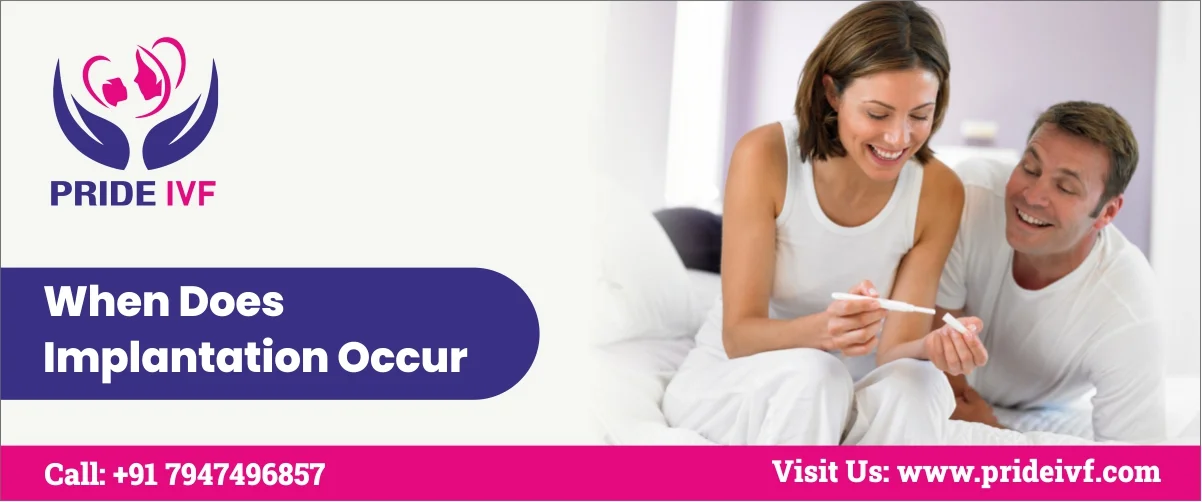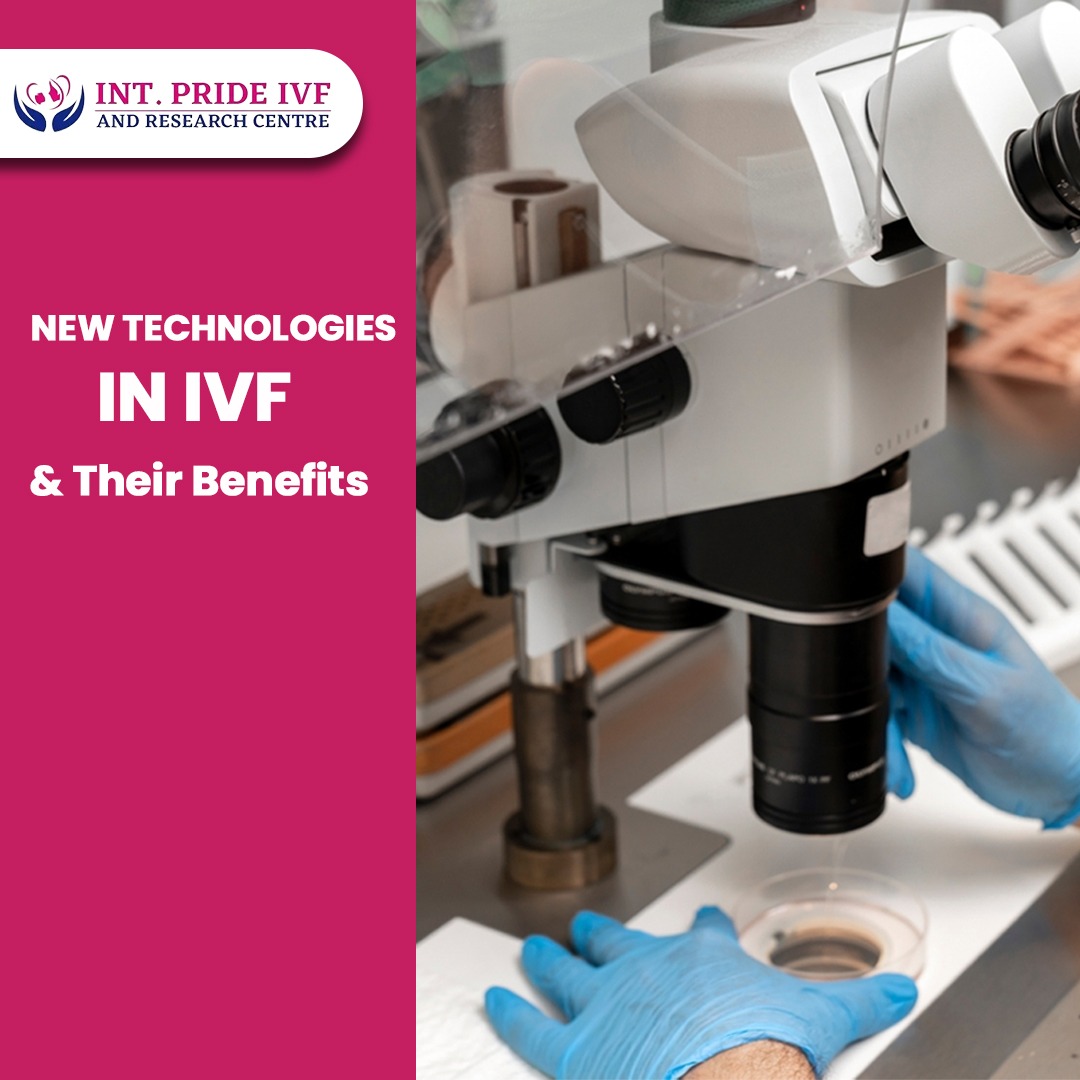If you have decided to venture into the beautiful journey of parenthood, scrolling through various articles on pregnancy might have become a part of your routine. But have you heard about implantation? It is the most crucial step of all after embryo transfer. Understanding when does implantation occur is essential for knowing how pregnancy progresses. Here’s what you need to follow to have a healthy pregnancy.
What is Implantation?
The moment you step out of the clinic after embryo transfer takes place, the real work begins along with the waiting period. The first step implantation which means that the transferred embryo gets attached to the uterine lining and embeddes into it.




When Does Implantation Occur After Embryo Transfer?
The ideal time when the uterine responsive to the embryo known as implantation window. Usually, the implantation can occur anywhere from six to ten days after the embryo transfer. Let’s understand it in detail.
Day-by-Day Implantation After Embryo Transfer
Day 1-3 The Initial Stage
Day 1: The embryo travels down the fallopian tube and into the uterus to start its journey.
The patient might experience mild cramps or pain.
Day 2: The embryo reaches the blastocyst stage and continues to grow.
Day 3: The blastocyst begins to emerge from its shell and becomes ready to implanted.
Day 4-6 The Crucial Implantation Period
Day 4: At this stage, the implantation process begins and some patients might notice light bleeding or spotting as the embryo attaches itself to the uterine lining.
Day 5: The embryo goes deeper into the uterine lining as the lining becomes more responsive to it.
Day 6: By this day, the whole process of implantation is usually completed. Now that the embryo embedded into the uterine lining, the body produces a hormone called hCG which can measured by the patient to ensure that the implantation is successful.
Day 7-10 Process After Implantation Is Successful
Day 7: The hCG levels can be measured by the patient easily via pregnancy test or blood test.
Day 8-10: Thye embryo starts to grow as the placenta begings to form leading to early signs of pregnancy.
What Happens After Implantation?
Once you hear the good news after the pregnancy test. Your body will begin to go through several hormonal changes and symptoms of implantation will soon knock on the door! Here’s a few of the signs and symptoms of implantation that you might observe:
- Implantation bleeding: The patients wilol spot light bleeding which is different from the menstrual blood as it’s duration is shorter. Also Read: When does implantation bleeding occurs?
- Breast tenderness or soreness: Due to hormonal changes, patients may experience swollen breasts as another implantation symptoms.
- Fatigue: As your progesterone levels increase, you may feel more tired than usual. This indicates that it’s time to be a couch-potato and binge-watch your favourite shows.
- Nausea: Some patients might feel the urge to vomit which is often called as morning sickness. This occurs in later stages of pregnancy as well.
- Frequent urination: As hCG levels rise, increased blood flow to the pelvic area leads to frequent visits to the restroom.
- Cravings: Be ready to taste test all kinds of foods that you might even dislike as part of this beautiful journey. Some patients alsoexperience aversions to certain foods. It is best to follow a healthy diet as instructed by your doctor.
- Mood swings: As your body goes through different hormonal changes and does all the hard work, you are bound to experience heightened sensitivity and erratic behavioural changes. It is completely normal.
- Basal body temperature: Patients can track the basal body temperature to test the success rate of implantation after embryo transfer. Basal Body Temperature rises due to hormonal changes in the body after implantation is successful.
Also Read: positive signs after embryo transfer and negative signs after embryo transfer
What Are the Possible Complications After Implantation?
Sometimes, there are a few factors that can affect the success of implantation after embryo transfer. Here’s what you need to know:
- Lifestyle: Your diet, physical movements and stress management plays a crucial role in this scenario. Avoiding alcohol and smoking excessively can also positively impact the success of implantation after embryo transfer. Also Read: After Embryo Transfer Day By Day Symptoms.
- Hormonal balance: The progest5erone levels should be adequate to maintain a receptive uterine lining for embryo.
- Age: Younger patients have higher success rates of implantation after embryo transfer due to better uterine receptivity and egg quality.
- Uterine receptivity: It is essential to ensure the readiness and thickness of uterine lining for implantation.
- Embryo quality: It is crucial to choose high-quality embryos and put your faith in the hands of medical experts to ensure the success of implantation after embryo transfer.
Discover the Best IVF Centre in Delhi: PRIDE IVF
These factors can influence your dream to cradle your little angel, therefore, trust only the experts at PRIDE IVF.
PRIDE IVF stands out as one of the best IVF centre in Delhi, with high success rates and advanced medical techniques. We committed to making your dream come true by offering affordable, high-quality fertility care. Our medical team of experts is led by the renowned Dr. Nidhi Sharma who specialises in handling complex cases with a patient-friendly approach, love, empathy and care.
Put your faith in the right hands and forget all your worries because we, at PRIDE IVF, will be with you at every step to guide you and turn your dream into a beautiful reality.




FAQs
Q. What influences the timing of implantation after embryo transfer?
Implantation usually occurs 1 to 5 days after embryo transfer. The timing of implantation impacted by several factors. For example, the receptivity of the uterine lining, known as the endometrium, is essential. The uterine lining must be in a responsive, which usually occurs around 7-10 days after ovulation in a natural cycle. Adequate level of progesterone is essential for maintaining a responsive uterine lining and hormonal imbalances can delay the process of implantation.
Q. What can I do to improve the chances of successful implantation after embryo transfer?
It is crucial to follow an optimal diet and focus on stress management to maintain a healthy reproductive health. Patients must increase their intake of foods rich in folic acids, Omega-3 fatty acids and antioxidants as well. Practicing healthy habits such as yoga, meditation, breathing exercises and engaging in relaxing activities can also promote good health. Do not forget to take progestrone supplements to strenghten the uterine lining for better receptivity. It is better to avoid strenuous activities and toxins of any sort such as alcohol, smoking to improve chances of implantation success after embryo transfer.
Q. When should I take a pregnancy test?
Patients advised to wait for atleast full two weeks after embryo transfer to test the implantation success rate. If you test too soon, low hCG levels may show a false negative. A blood test also scheduled by the fertility clinic after 14 days post embryo transfer. An ultrasound after six-eight weeks of pregnancy can confirm the success of implantation after embryo transfer.
Q. What should I do if there are no signs of pregnancy after embryo transfer?
Please remember that many women have successful pregnancies without experiencing noticeable implantation symptoms. It is important to follow doctor’s instructions and keep a positive mindset. Testing too early might lead to stress and unnecessary tension. Relax and take a blood test after fourteen weeks. You will be expecting soon.:)




